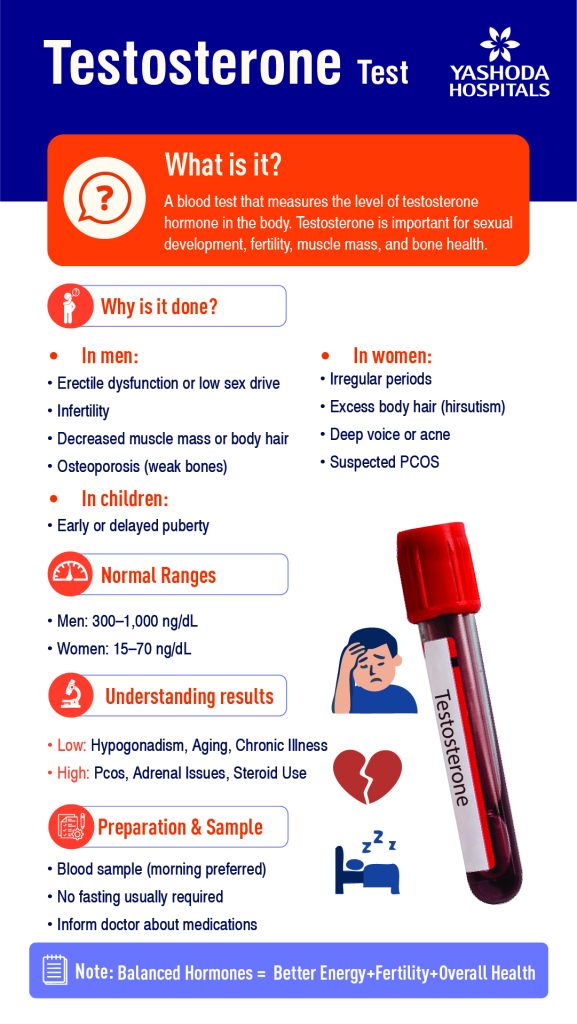What is a testosterone test?
Testosterone is the primary sex hormone and anabolic steroid in males. It is produced by the testes in boys and in much smaller quantities by the ovaries in girls. Adrenal glands in both boys and girls also produce some amount of the hormone.
Testosterone is key to the development of male reproductive tissues like the prostate and testes, promoting secondary sexual characteristics like an increase in muscle and bone mass as well as the growth of body hair. A testosterone test measures the blood level of the hormone and is used to identify the reason for sexual problems like low sex drive or erectile dysfunction.
Not just for men, a testosterone test is an important test that is used to understand the workings of the reproductive system in both genders.





 Appointment
Appointment WhatsApp
WhatsApp Call
Call More
More